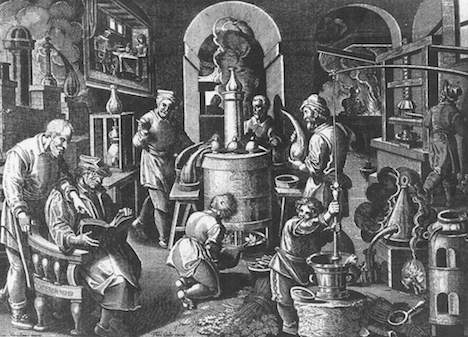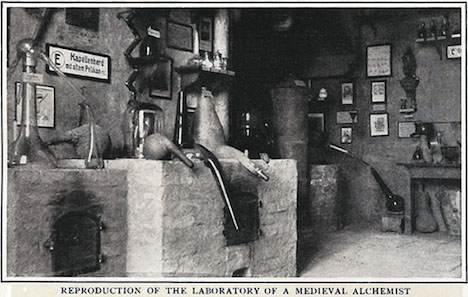|
- Evan T. Pritchard, from No Word for Time: The Way of the Algonquin People[1]
The processes of hydraulic natural gas fracturing (aka fracking) and obtaining shale oil involve the fracturing of rocks. Not only is Mother Earth being abused for profit, so are the Grandfather Rocks. The side-effects are toxicity of land, air and water. As a clip from the documentary Triple Divide reveals, adverse affects on the water can affect the cows which affects the milk which... you get the picture.[2]
Add to that: “Any tank holding any liquid from hydrochloric acid to rainwater can burst at any time, but that’s not what concerned residents across Pennsylvania and other states are worried about. They are worried about the tens of thousands of permanent holes being punched through fresh groundwater sources and the ensuing air pollution released from the massive industrial infrastructure the industry requires.”[3]
The injection of chemicals into Mother Earth and the busting up of Grandfather Rocks reminds of the story of the alchemical process and the philosopher's stone.
In brief, mystical or spiritual alchemy is a process of transmuting the lead or chaos of one's consciousness into gold or clarity about one's life purpose; the philosopher's stone is said to be a kind of elixir helping to improve conditions. Yet the modern chemical, mining and extractive industries – predominantly corporations backed by cherry-picked science and technology – seek material gold; nowadays any resource with a potential monetary bonanza is, in effect, a gold rush.
Rush Jobs The historical fixation on actual gold has already mis-shaped lands and peoples' lives worldwide. The California gold rush began in 1848 and the Pike's Peak (Colorado) Gold Rush, 1858.
The Fort Laramie Treaties (1851 and 1868) were broken by the USEmpire when gold was discovered (1874) in the Black Hills (Paha Sapa), sacred land to the Lakota Nations.[4]
“Additional oppression has taken place over the broken Fort Laramie Treaty. This issue has been taken all the way to the Supreme Court to try to get the US government to honor the original treaty (United States vs. Sioux Nation of Indians.) In 1980, the Supreme Court would not grant the land back to the Lakota people. Instead, the government granted them a settlement of $17.5 million dollars for the land at 5% interest per year since 1877, totaling 106 million at that time. The Lakota have rejected this money due to the principle of the treaty promise and also because the land is not valued for its financial resources, but a loss of a place that is sacred to the people and believed to have healing power.”[5]
This is the main reason why Pine Ridge and other Lakota reservations are still dealing with high unemployment (80-90%),[6] poverty, and suicide rates.
“The Lakota reservations are among the most impoverished areas in North America, a shameful legacy of broken treaties and apartheid policies.”[7] In Australia: “The rush of diggers to the goldfields increased the problems of displacement of the Aborigines from their own land. The effects of gold mining on the land were devastating and long-lasting. Gold mining ripped up the land, polluted the rivers and creeks, and left nothing for the aboriginal people who had lived there for centuries. Aborigines were again dispossessed of their land as they had been time and time again since the arrival of the Europeans.”[8]
In Brazil, Minais Gerais (Portuguese for ‘general mines’) also experienced a gold rush which peaked in 1750.[9]
In his book Open Veins of Latin America Eduardo Galeano wrote:
Chemical and Alchemical The 'chemical age' is cited as beginning with the Industrial Revolution which was “from about 1760 to sometime between 1820 and 1840.”[11] Two of the most well-known power-players today have long histories; Dow Chemical was founded in 1897[12] and Dupont in 1802 “as a gunpowder mill.”[13]
Modern brainwashing was
heavily influenced
by DuPont's slogan:
Both Dow Chemical and Monsanto had their hands in the making of napalm and Agent Orange which were used heavily on the Vietnamese in the 1960s and '70s during the Vietnam War.[15]
Add to that the 1950s boom-time for agricultural and lawn pesticides and it's not hard to see how chemicals have helped distort the world we are dealing with today.
Chemical corporations are major providers of stuff. “The chemical industry comprises the companies that produce industrial chemicals. Central to the modern world economy, it converts raw materials, (oil, natural gas, air, water, metals, and minerals) into more than 70,000 different products.”[16]
Some of those products have value and are useful, for example, PVC pipes, nylon, lycra (invented by Dupont in 1958),[17] but it is high time we re-consider the side-effects in toto. BASF, headquartered in Germany, is the largest chemical company in the world.[18] BASF (1865) founded IG Farben (1925) which was “a German chemical industry conglomerate, notorious for its role in the Holocaust.”[19] (Yet perhaps, like me, you copied some of your favorite albums onto blank BASF cassette tapes.) Back to the alchemical story... The process of transmuting base metals into gold requires many processes and phases. This is how it is with any living 'thing.' For dinner I rinse the rice, soak it, boil water, the water is absorbed, a meal is prepared providing nourishment, then parts of that meal – both from the cooking pots and stomach – are processed and eliminated as waste. That's part of life, yet excesses of waste that ruin the environment are a different story and one of the main parts of that story has to do with the abuse of those who help produce 'things.'
Eric Holt-Giménez wrote in a recent article: “We both know what many food justice activists have felt for a long time—that all the organic carrots and farmers markets in the world are not going to end hunger unless we also end racism. Not just the racism inherent to our food system, but its pervasiveness in the food movement itself.”[20]
As Galeano further noted, about the obtaining of Brazilian gold two to three centuries ago: “it is estimated that some 10 million blacks were brought from Africa,”[21] not to mention the slave labor of Latin America's Indigenous Peoples.
It's also important to realize that the big banks have become heavily invested in commodities (which includes various storage facility leases), with the likes of Morgan Stanley, JP Morgan, Bank of America, and Goldman Sachs controlling production and transport of natural gas, coal, uranium, and, there are billions of dollars connected with “base metals warehousing/storage worldwide.”[22]
Shifting Landscapes Solutions are many but here are a few basic guidelines. Throughout history and the current trans- national corporate schemes waves of people have migrated by choice and by force, shifting landscapes, economies, and the well-being of people.
Consciousness of where stuff comes from, how it is acquired, and how the people doing the work are treated is essential. These awarenesses help to encourage ways of feeding ourselves and obtaining necessary resources in a manner that does not create toxic chaos, rather helps create renewable, sustainable and long-range plans which include allowing time for Mother Earth to heal her wounds.
One level of activism involves wise consumer choices. En masse, boycotts are perhaps the most effective, Gandhi's 1930 Salt March aka Salt Satyagraha being a good example.
Another counter-wave is that of protests and being on the front line protecting resources. Much can be learned from a recent success story:
Bars of gold may be an elite investment tucked away in hidden and heavily-guarded vaults in case of economic emergencies, but this third rock from the Sun is more than worth its weight in gold because it is, in fact, made of gold and other truly precious metals, stratas of Grandfather Rock, the soil from which our foods grow, and on, and on.
Fracking and various mining processes under corporate-chemical-banking control show little respect for other living beings who work just as hard (think Earthworms) but whose aim is to improve the quality of the soil. Although there is no exchange rate for the lowly Earthworm, those squiggly little hermaphroditic relations are as valuable as gold. Since the word Alchemy is attributed to a combination of the Arabic “al” meaning “the” and an ancient name for Egypt, “Khemia” meaning “land of black earth,”[24] isn't it time we held those little workers, and various others, in high esteem?
Terms like “fair trade” provide a guideline for treatment of two-legged workers. It is by honoring the full cycle and monitoring the overall processing of products that people will be informed and thus able to heal worldly conditions.
Mankh (Walter E. Harris III) is an essayist and resident poet on Axis of Logic. In addition to his work as a writer, he is a small press publisher and Turtle Islander. His newest haiku chapbook is “so many people go hungry.” He also hosts an audio show "Between the Lines: listening to literature online." You can contact him via his literary website. READ MORE POETRY AND ESSAYS BY MANKH ON AXIS OF LOGIC
NOTES: 1. Resonance Communications, NY. Third Edition, 2012. 4. “The Lakota Nation: Treaties” 5. “Lakota Sioux” 6. “The Black Hills Are Not For Sale” 7. Ibid #4. 8. “How did the Australian gold rush affect the Aborigines?” 10. Open Veins of Latin America: Five Centuries of the Pillage of a Continent, Monthly Review press, NY, 1973, 1997, p51. 11. “Industrial Revolution” 12. “Dow Chemical Company” 13. “Dupont” 14. “Better Living Through Chemistry” 15. Ibid #10. 16. “Chemical industry” 17. “Spandex” 18. “BASF” 19. “IG Farben” 20. “Tangled Roots and Bitter Fruit: What Ferguson and New York Can Teach the Food Movement” 21. Ibid # 9, p.52. 22. “Scale of Wall Street holdings unprecedented” 23. “Kinder Morgan gives up in British Columbia” 24. “Alchemy” |

